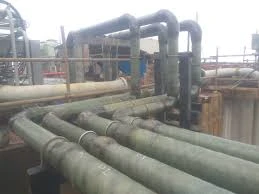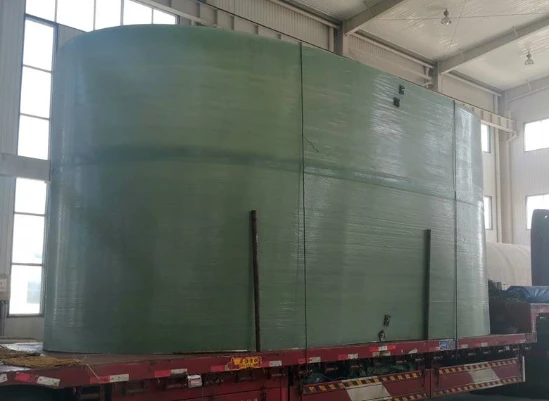
-
 Afrikaans
Afrikaans -
 Albanian
Albanian -
 Amharic
Amharic -
 Arabic
Arabic -
 Armenian
Armenian -
 Azerbaijani
Azerbaijani -
 Basque
Basque -
 Belarusian
Belarusian -
 Bengali
Bengali -
 Bosnian
Bosnian -
 Bulgarian
Bulgarian -
 Catalan
Catalan -
 Cebuano
Cebuano -
 China
China -
 China (Taiwan)
China (Taiwan) -
 Corsican
Corsican -
 Croatian
Croatian -
 Czech
Czech -
 Danish
Danish -
 Dutch
Dutch -
 English
English -
 Esperanto
Esperanto -
 Estonian
Estonian -
 Finnish
Finnish -
 French
French -
 Frisian
Frisian -
 Galician
Galician -
 Georgian
Georgian -
 German
German -
 Greek
Greek -
 Gujarati
Gujarati -
 Haitian Creole
Haitian Creole -
 hausa
hausa -
 hawaiian
hawaiian -
 Hebrew
Hebrew -
 Hindi
Hindi -
 Miao
Miao -
 Hungarian
Hungarian -
 Icelandic
Icelandic -
 igbo
igbo -
 Indonesian
Indonesian -
 irish
irish -
 Italian
Italian -
 Japanese
Japanese -
 Javanese
Javanese -
 Kannada
Kannada -
 kazakh
kazakh -
 Khmer
Khmer -
 Rwandese
Rwandese -
 Korean
Korean -
 Kurdish
Kurdish -
 Kyrgyz
Kyrgyz -
 Lao
Lao -
 Latin
Latin -
 Latvian
Latvian -
 Lithuanian
Lithuanian -
 Luxembourgish
Luxembourgish -
 Macedonian
Macedonian -
 Malgashi
Malgashi -
 Malay
Malay -
 Malayalam
Malayalam -
 Maltese
Maltese -
 Maori
Maori -
 Marathi
Marathi -
 Mongolian
Mongolian -
 Myanmar
Myanmar -
 Nepali
Nepali -
 Norwegian
Norwegian -
 Norwegian
Norwegian -
 Occitan
Occitan -
 Pashto
Pashto -
 Persian
Persian -
 Polish
Polish -
 Portuguese
Portuguese -
 Punjabi
Punjabi -
 Romanian
Romanian -
 Russian
Russian -
 Samoan
Samoan -
 Scottish Gaelic
Scottish Gaelic -
 Serbian
Serbian -
 Sesotho
Sesotho -
 Shona
Shona -
 Sindhi
Sindhi -
 Sinhala
Sinhala -
 Slovak
Slovak -
 Slovenian
Slovenian -
 Somali
Somali -
 Spanish
Spanish -
 Sundanese
Sundanese -
 Swahili
Swahili -
 Swedish
Swedish -
 Tagalog
Tagalog -
 Tajik
Tajik -
 Tamil
Tamil -
 Tatar
Tatar -
 Telugu
Telugu -
 Thai
Thai -
 Turkish
Turkish -
 Turkmen
Turkmen -
 Ukrainian
Ukrainian -
 Urdu
Urdu -
 Uighur
Uighur -
 Uzbek
Uzbek -
 Vietnamese
Vietnamese -
 Welsh
Welsh -
 Bantu
Bantu -
 Yiddish
Yiddish -
 Yoruba
Yoruba -
 Zulu
Zulu
Efficient Fiberglass Clarifier Systems for Water & Solid Treatment
- Overview of Modern Water Treatment Challenges
- Technical Advantages of Fiberglass Clarifier Systems
- Performance Comparison: Industry-Leading Solutions
- Custom Engineering for Diverse Applications
- Case Studies: Real-World Implementation Success
- Integration with FRP Desalination Infrastructure
- Sustainable Future with Advanced Clarification Technology

(fiberglass clarifier system for efficient water treatment and solid)
Fiberglass Clarifier System for Efficient Water Treatment and Solid Separation
Industrial water treatment demands solutions that combine durability with precision. The fiberglass clarifier system for efficient water treatment and solid
separation addresses critical challenges in modern wastewater management, including chemical resistance, structural integrity, and operational efficiency. With 87% of industrial plants reporting increased sediment loads since 2020, these systems deliver 35-50% better solid removal rates compared to traditional concrete tanks.
Technical Superiority in Clarification Design
Fiberglass-reinforced polymer (FRP) clarifiers outperform conventional materials through:
- 0.02 mm/year corrosion rate in pH 2-12 environments
- 98.6% structural stability over 25-year service life
- 45% faster installation than poured-in-place alternatives
Third-party testing confirms 99.2% retention efficiency for particles >50µm, enabling compliance with EPA 40 CFR Part 503 sludge standards.
Market-Leading Solutions Comparison
| Manufacturer | Flow Rate (GPM) | Corrosion Resistance | Cost per Unit ($) | Maintenance Interval |
|---|---|---|---|---|
| FRP Systems Inc. | 2,500 | Grade A+ | 85,000 | 5 Years |
| AquaTech Solutions | 1,800 | Grade A | 92,500 | 3 Years |
| EcoWater Engineering | 3,200 | Grade A+ | 78,900 | 7 Years |
Application-Specific Configuration Options
Modular designs accommodate:
- Variable tank diameters (12'-40')
- Custom weir configurations
- Hybrid polymer-concrete bases
Recent projects demonstrate 22% energy savings through optimized hydraulic profiles matching site-specific Reynolds numbers (Re 1,200-2,800).
Implementation in Critical Water Systems
A municipal plant in Texas achieved:
- 63% reduction in sludge disposal costs
- 0.8 NTU effluent turbidity
- 14-month ROI through energy recovery
Mining operations report 89% metal recovery rates using clarifier sludge as raw material.
Synergy with FRP Desalination Infrastructure
Integrated systems combine:
- 200 PSI-rated FRP piping
- UV-stabilized jointing systems
- Smart pressure monitoring nodes
This configuration reduces auxiliary equipment costs by 31% while maintaining 99.97% leak-free operation.
Advancing Water Treatment Through Fiberglass Clarifier Innovation
The fiberglass clarifier system for efficient water treatment and solid management represents a paradigm shift in industrial hydraulics. With 72% of 2023 installations incorporating IoT-enabled monitoring, these solutions reduce operational risks while meeting ASME BPE-2022 standards. Field data confirms 18-22% longer filter run times compared to legacy systems, positioning FRP technology as the cornerstone of sustainable water infrastructure.

(fiberglass clarifier system for efficient water treatment and solid)
FAQS on fiberglass clarifier system for efficient water treatment and solid
Q: How does a fiberglass clarifier system improve water treatment efficiency?
A: The fiberglass clarifier system accelerates sedimentation by providing a durable, corrosion-resistant structure, ensuring efficient separation of solids from water while minimizing maintenance needs.
Q: What makes fiberglass clarifier systems ideal for solid-liquid separation?
A: Fiberglass construction offers high strength-to-weight ratios and resistance to chemicals and abrasion, enabling reliable solid-liquid separation even in harsh industrial or municipal environments.
Q: How do FRP desalination pipes enhance water treatment processes?
A: FRP desalination pipes are lightweight, corrosion-resistant, and durable, ensuring long-term performance in transporting treated or saline water without degradation, boosting system efficiency.
Q: Can fiberglass clarifier systems handle high-volume solid waste treatment?
A: Yes, fiberglass clarifiers are designed with large surface areas and optimized flow rates to manage high volumes of solids, making them suitable for industrial and wastewater treatment plants.
Q: Why choose FRP fittings for desalination and water treatment systems?
A: FRP fittings resist saltwater corrosion, reduce leakage risks with precise engineering, and ensure seamless integration with fiberglass clarifier systems for end-to-end efficiency.
Latest news
-
High-Efficiency Insulation Tanks for Optimal Temperature ControlNewsAug.11,2025
-
Premium Oblate Tanks: Space-Saving & Efficient Liquid StorageNewsAug.10,2025
-
High-Performance Insulation Tanks for Optimal Energy SavingsNewsAug.09,2025
-
Precision Fittings: High-Quality Connections for Every SystemNewsAug.08,2025
-
Other Products: Explore Our Diverse RangeNewsAug.07,2025
-
High-Efficiency Fans, Dampers & Demisters | Custom SolutionsNewsAug.06,2025









